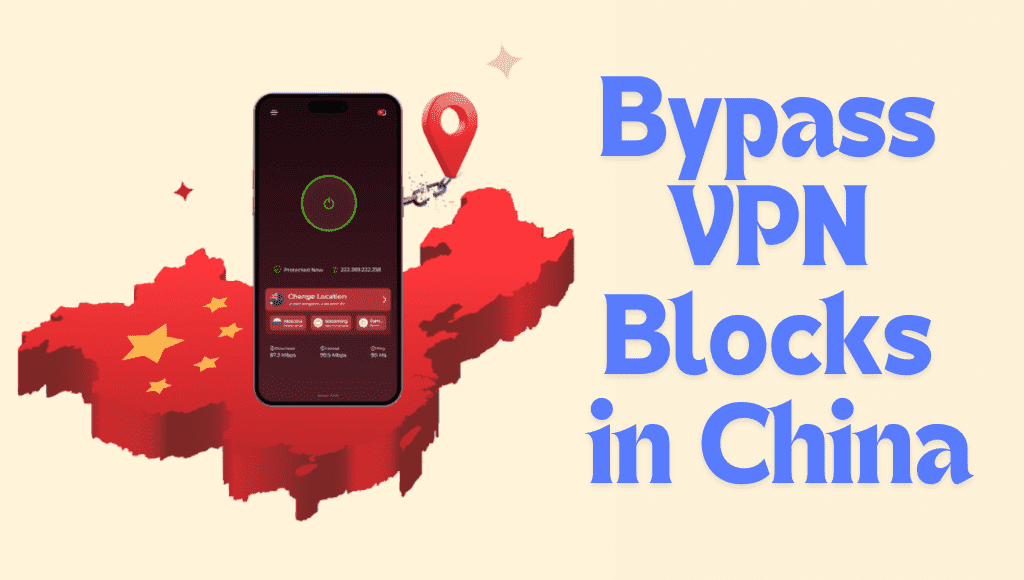
How to Bypass VPN Blocks in China
China’s internet landscape is famously guarded by the Great Firewall, posing a challenge for residents and travelers to access unrestricted content. However, with the right tools and strategies, such as virtual Private Networks (VPNs), these restrictions can be circumvented. This guide empowers you with practical strategies to bypass the great firewall of geo-restriction and censorship in China, allowing you to reclaim your online freedom.
Understanding the Challenge
China employs sophisticated techniques to detect and block VPN traffic, aiming to control the flow of information within its borders. This includes deep packet inspection (DPI) to identify VPN protocols and IP blocking to target VPN servers. As a result, many VPN services struggle to maintain consistent access from within China.
How to Bypass VPN Blocks in China
✅ Choose a Reliable VPN Provider
Not all VPNs are created equal when it comes to bypassing Chinese censorship. Look for providers that offer obfuscation techniques, such as scrambling VPN traffic to make it appear as regular HTTPS traffic. Some well-known VPNs with a track record of working in China include ExpressVPN, NordVPN, and Symlex VPN.
✅ Utilize Shadowsocks or SSH Protocol
Shadowsocks and SSH tunnels are alternative methods for bypassing censorship that can be more resilient than traditional VPNs. These protocols disguise your internet traffic, making it harder for the Great Firewall to detect and block. However, setting up and maintaining these solutions may require more technical expertise.
✅ Switch VPN Protocols
VPN protocols like OpenVPN, L2TP/IPsec, and IKEv2 are commonly blocked in China. Switching to less widely used protocols such as SSTP or SoftEther may improve your chances of bypassing censorship. Additionally, enabling the “stealth mode” or “obfuscation” feature offered by some VPN providers can help disguise VPN traffic.
✅ Use Dedicated IP Addresses
Some VPN providers offer dedicated IP addresses as an add-on feature. These IP addresses are less likely to be blocked by the Great Firewall since they are not shared among multiple users. While this option may come at an additional cost, it can provide more reliable access to blocked content.
✅ Stay Updated and Flexible
The cat-and-mouse game between VPN providers and the Chinese government means that access methods can change frequently. Stay informed about the latest developments, and be prepared to switch VPN servers or protocols if one becomes blocked. Additionally, consider using multiple VPNs simultaneously or combining VPNs with other circumvention tools for added redundancy.
✅ Try Mobile Data or International Roaming
In some cases, accessing the internet through mobile data or international roaming services provided by foreign carriers can bypass the Great Firewall’s restrictions. However, be mindful of potential roaming charges and data limits associated with this method.
Conclusion
Bypassing VPN blocks in China requires persistence, flexibility, and the right tools. By choosing a reliable VPN provider, experimenting with alternative protocols, and staying informed about the latest censorship evasion techniques, you can reclaim your ability to access the open internet from within the confines of the Great Firewall. Remember to prioritize your online privacy and security while navigating these digital barriers. VPN Story promises to help people find the right VPN and enjoy a safe and secure online experience.